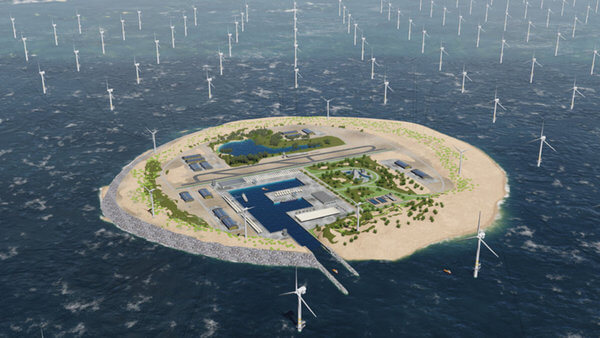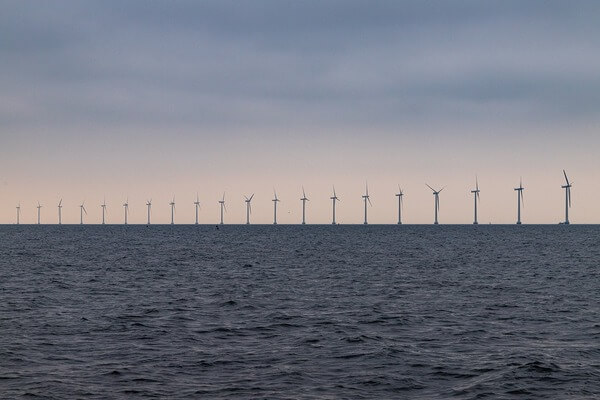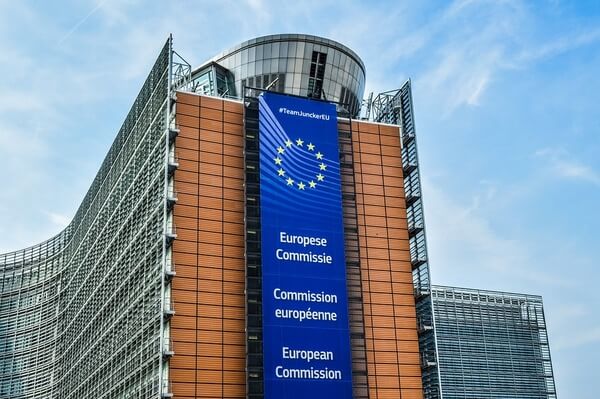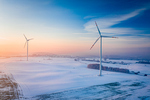News Release from windfair.net
Wind Industry Profile of
Denmark Leads the Energy Transition
There are just about 5.8 million Danes. Nevertheless, the country has now decided to expand its offshore wind energy capacity by 2030 to the point where it is calculated that 7.7 million households can be supplied with it. This corresponds to a quadrupling of the current capacity.
The Danes are pursuing innovative ways to achieve this. A few years ago, when German-Dutch grid operator TenneT proposed an energy island in the North Sea, everybody was frowning. Now Denmark wants to implement this project.
The energy islands will act as hubs that enable the connection of several offshore wind farms and distribute the electricity between the countries connected to the island. The two planned gigantic offshore wind energy islands will be located in the North Sea and Baltic Sea and can help to increase the share of renewable energy in Europe.

The proposal for energy islands from TenneT caused people to frown at first. (Image: TenneT TSO GmbH)
But Denmark is not only fully committed to the energy transition at home, but also within Europe, as the country made clear on Tuesday. At an informal Environment Council meeting the country took stock of the EU climate change law, calling for greater ambition and an accelerated process.
“The European climate law needs to become a strong vehicle for continued progress on the green agenda in the EU, ensuring a proper framework for our common journey towards climate neutrality and standing as a bulwark against developments that threaten to throw us off course," said Dan Jørgensen, the Danish Minister for Climate, Energy and Utilities, at a virtual breakfast meeting of ministers from the Green Growth Group, which discussed how to ensure a strong climate law and a higher reduction target for 2030. "The goal of climate neutrality should be binding for both individual member states and the EU as a whole, and we need to recognize that science compels us to achieve negative emissions in the second half of the century,” Jørgensen said.
Meanwhile, the Covid-19 crisis has turned the international climate calendar upside down and threatens to jeopardise global climate dynamics. However, countries are still obliged under the Paris Agreement to review their climate targets this year - despite the postponement of the UN climate summit COP26 in the UK until next year.

Offshore wind energy and green hydrogen form the basis for Denmark's climate law (Image: Pixabay)
Denmark therefore continues to exert pressure. The measures adopted at home also include massive investments in the development of carbon capture technologies and sustainable e-fuels such as green hydrogen, and are part of the Climate Change Act adopted in December 2019, which commits Denmark to reducing its greenhouse gas emissions by 70% by 2030 (compared to 1990). Consequently, Denmark must reduce its emissions by 20 million tonnes of CO2 by 2030.
This must not be allowed to change even in the face of Covid-19: “By creating the world’s first two energy islands and by investing in sustainable fuels, we are making a crucial contribution to the international fight against climate change. I hope that this agreement will show other nations that climate action and economic recovery goes hand-in-hand." For even "in the face of a historic health and economic crisis, we must show that our commitment to the fight against climate change is unwavering. There is no time to lose and our next step is crucial. That’s why Denmark has been pushing hard for a stronger 2030 target of at least 55% by the end of this year. If we don’t walk the talk, how can we persuade other big emitters to ramp up ambition? It is imperative that the EU leads by example”, says Jørgensen and holds the other EU countries to account.

In the coming months, Germany will have the Green Deal on the European agenda (Image: Pixabay)
Germany, which will hold the EU Council Presidency in the second half of 2020, has chosen the motto 'Together. Making Europe strong again', and has taken up the agenda to promote cooperation between the Member States in the field of offshore wind energy and to develop an EU internal market for hydrogen.
Germany's Federal Minister of Economics, Peter Altmaier, said: "We will only get out of the crisis with a strong Europe. Economic policy will be the central focus of our Council Presidency. We must implement the reconstruction plan and strengthen independence in Europe. We want to make industry greener with joint hydrogen projects."
So Denmark has already found a comrade-in-arms.
- Author:
- Katrin Radtke
- Email:
- press@windfair.net
- Keywords:
- Denmark, Germany, energy transition, climate law, Paris Agreement, hydrogen, offshore, energy island, TenneT, North Sea, Baltic Sea, investment, corona






















